SUSTAINABILITY REPORT 2022













In an ever-changing world where extreme events have become the norm, we must incorporate Environmental, Social and Governance (ESG) considerations into how we invest. Gone are the days where ESG factors were considered ‘non-financial’ matters. As we have seen with COVID-19, climate change and more recent risks like cyber security breaches, they can all have material financial implications on a company or an industry. Salt Funds Management is an active manager, leading the way in ESG integration and alignment with client values. As a fund manager, our core objectives are to manage client funds in a way that doesn’t do significant harm, use its position as a shareholder to encourage and support companies to do better, and, where possible, do good while continuing to deliver strong returns to our clients. Through active management, stewardship, innovation, and sustainable leadership, we can deliver more sustainable returns in the long term while activating positive change to support a faster transition for the benefit of generations to come. In our most recent Structural Themes Report; Sustainability, Climate Change, Decarbonisation, Digital Transformation, Ageing Populations and Rising Dependency Rations were within the key themes and are all connected to ESG.
Salt is a long-standing signatory to the United Nations-sponsored Principles of Responsible Investment (PRI), which we have used as guiding principles for Salt’s Responsible Investment Policy. In 2022, we received our 2021 marks which showed 5 stars (out of 5) for Investment and Stewardship Policy, 4 stars for Direct – Listed Equity (Active Fundamental – incorporation) and 4 stars for Direct – Listed Equity (Active Fundamental –voting). On page 19 is our scorecard. We are proud of what we have accomplished but our work is ongoing, as will be the evolution of the PRI scoring system as the overall integration within investment funds continues to improve.
Last year we became a founding member and signatory of the Stewardship Code Aotearoa New Zealand. The guiding principles adopted by the code are very much in line with what we were already doing, and we believe a collective effort by the members of the code will put New Zealand in good stead to genuinely engage and lead New Zealand companies in a positive direction across different ESG themes.
In addition, we were recognized for 2022 by the Responsible Investment Association Australasia (RIAA) as a Leader within the Responsible Investment field. We commend RIAA for establishing a Responsible Investing scoring system for New Zealand and are proud to be part of the leading group.
Salt has partnerships with two external managers to manage global investments, Morgan Stanley Investment Management and Cohen & Steers. Alignment with Salt’s values and investment beliefs is a key part of the due diligence process when appointing an external manager. Successful external managers must be active owners demonstrating genuine and successful ESG integration. They must be a PRI signatory with robust survey responses and scores showing ESG integration, as well as their commitment to the principles.
Over the next 18 months, we look forward to New Zealand companies disclosing against the Climate Related Disclosure Framework which will significantly enrich our understanding of the risks and opportunities facing NZ companies from the physical adaption to climate change and the transitional risks and opportunities from transitioning to a lower carbon economy. By more complete disclosures from every company that meets the requirements, we expect improvements in third-party data offerings, which we believe will make them significantly more reliable and useable in the long term. In addition, the Australian Treasury has completed its first consultation on climate-related disclosures and is working on its own requirements for Australian companies.
Yours sincerely

 Paul Harrison, Managing Director and Matthew Goodson, Managing Director
Paul Harrison, Managing Director and Matthew Goodson, Managing Director
Salt Funds Management (Salt) is an active manager, leading the way in ESG integration and alignment with client values. As a fund manager, our core objectives are to manage client funds in a way that doesn’t do significant harm, use our position as a shareholder to encourage and support companies to do better, and where possible, do good while continuing to deliver strong returns to our clients. The transition to a sustainable economy will be ongoing. Through active management, stewardship, innovation, and sustainable leadership, we can deliver more sustainable returns in the long term while activating positive change to support a faster transition for the benefit of generations come.
Salt supports the United Nations Sustainable Development Goals (SDGs) and believes it can positively contribute to achieving these goals, both operationally and through its investment process. The SDGs are an articulation of the world’s most pressing sustainability issues and act as the globally
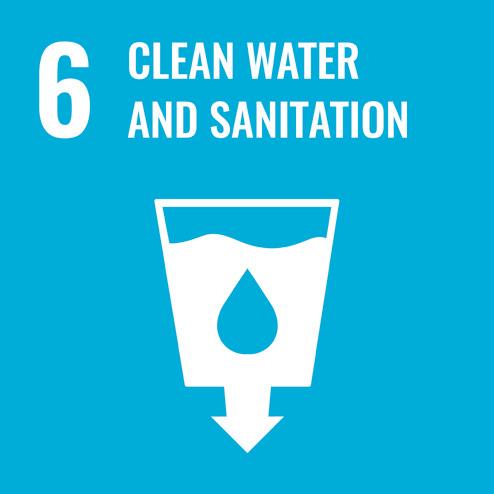
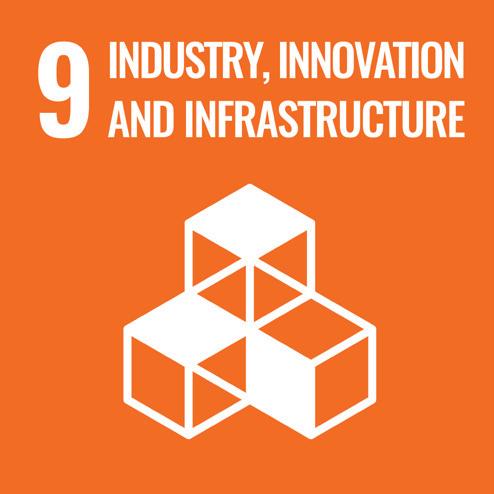
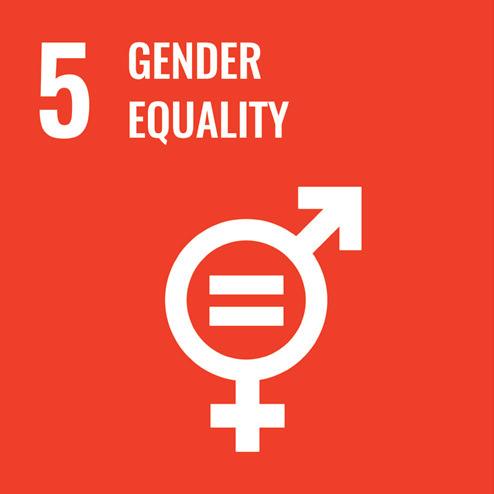
agreed sustainability framework. The 17 goals cover all aspects of development, from affordable and clean energy to good health to eradicating poverty and hunger. While we support the achievement of all SDGs, we believe the following are where we can make the greatest contribution from our business operations:
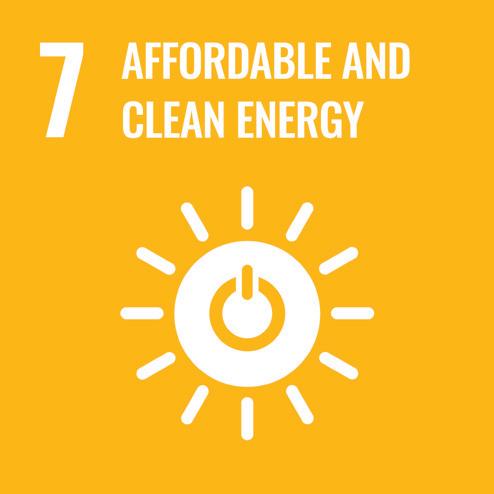
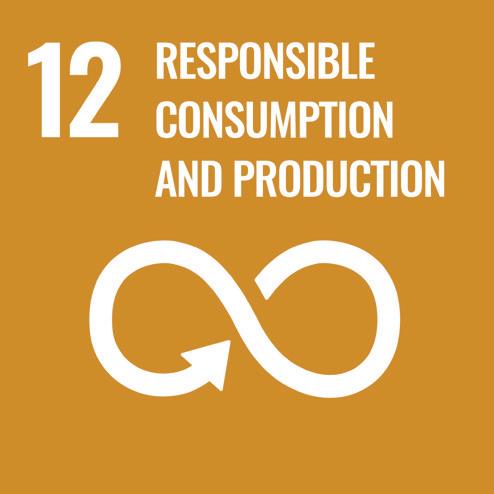

Salt believes the failure to achieve SDGs will impact all countries and sectors to some degree and create macro-financial risks. On the contrary, achieving the SDGs will be a driver of global economic growth, which we acknowledge as a structural source of financial return.
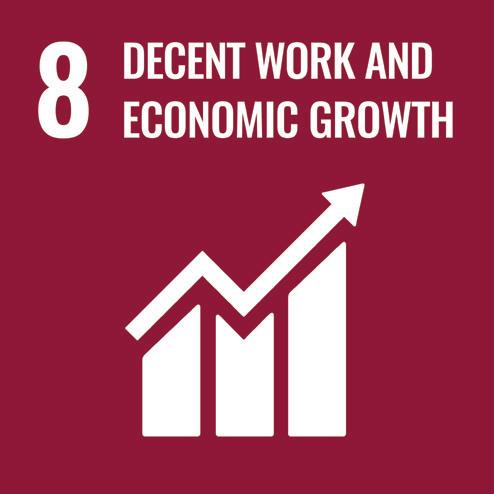
Internally, Salt is on a journey of creating a culture of sustainable awareness and action, doing its part to contribute to the SDGs and demonstrate leadership amongst its peers. While Salt’s operations are relatively small, we believe no effort is too small when it comes to fighting climate change and meeting the SDGs.

Climate Action (SDG #13) is the most significant threat to planet earth and our investment universe. Salt prioritises climate change mitigation and adaptation, both operationally and in its investment process.
The Paris Agreement is the global agreement on climate change to keep the global average temperature well below 2°C above pre-industrial levels, while pursuing efforts to limit the temperature increase to 1.5°C. Salt supports New Zealand’s alignment with the Paris Agreement and the introduction of the Climate Change Response (Zero carbon) Amendment Act to set New Zealand’s national targets into law and as such, will see the carbon intensity of Salt’s portfolio decrease over time.
In alignment with the Paris Agreement, we are an official supporter of the Taskforce of Climate-related Disclosures and the mandatory implementation in
New Zealand, encouraging New Zealand companies to identify and disclose risks associated with possible transition scenarios. We acknowledge each scenario has physical and transitional risks. However, an orderly transition will have the greatest longterm outcome and best position us to meet the net-zero 2050 target and the fast-approaching 2030 milestones.
The Taskforce for Climate-related Disclosures (TCFD) plays a vital role in identifying and communicating the physical and transitional risks within each business and how sustainable each company’s strategy is in different transition scenarios. Companies are encouraged to begin the process of identifying climate-related risks sooner rather than later, as it will bring these risks to the surface across a range of scenarios. Although mandatory from 2023, starting earlier will give companies more time to respond.”
Responsible investment, including ESG integration, is what we consider the foundation of our responsible investment commitment across all Salt’s investment options. We offer a range of funds along the sustainability spectrum that give our clients the option
of aligning their internal values and requirements with their investments. In addition, Salt is also the manager of the NZX-listed Carbon Fund (CO2.NZ) that actively invests in greenhouse gas emission allowance units generated in New Zealand and offshore.
• We will seek to understand the responsible investment needs of our clients.
• We will reflect public awareness of responsible investment considerations and create responsible investment options by developing and delivering innovative products and services.
• Where consistent with our fiduciary responsibilities and in alignment with the Principles for Responsible Investment (PRI):
a. We will incorporate ESG considerations into our investment analysis and decision-making processes.
b. We will be active owners and incorporate ESG considerations into our ownership policies and practices.
c. We will build the Salt team’s capacity to understand and assess ESG risks and opportunities and collaborate to enhance
our effectiveness in implementing our commitments.
d. We will report on our activities and progress towards managing ESG considerations and implementing the Principles for Responsible Investment.
e. We will seek disclosure on ESG considerations by the entities in which we invest.
f. We will promote acceptance and implementation of the Principles for Responsible Investment within the investment industry.
The full Responsible Investment Policy can be found on the Salt website.
We believe that superior investment outcomes are achieved when Environmental, Social and Governance (ESG) considerations are integrated into bottom-up research and included in the investment process. ESG is fully integrated into Salt’s quantitative and qualitative research using traditional tools like SWOT analysis and, more specifically, assessing the most material risks and opportunities for each industry and, therefore, each company. Information gained through this process impacts our assumptions for specific line items in the company model. In addition, for internally managed funds, Salt analysts determine ESG scores for each company, which is incorporated into the factor score and stock ranking. Salt elects to do this internally to avoid potential inconsistencies from external data.
As active managers, we look at our entire mandated investment universe to identify attractive investment opportunities to generate sustainable, long-term returns. However, we believe there are some industries
that we cannot include in our potential investment universe. As a base level across all of Salt’s investment options, we do not hold the securities of companies whose core business activities1:
• the manufacture of cluster munitions
• the manufacture or testing of nuclear explosive devices (NEDs)
• the manufacture of anti-personnel mines
• the manufacture of tobacco
• the processing of whale meat
• recreational cannabis, and
• the manufacture of civilian automatic and semiautomatic firearms, magazines or parts.
Each client is different and individual clients often determine additional exclusions, which we implement across Salt’s investment options. The Sustainable Global Shares Fund reflects changing investor preferences and has additional exclusions including fossil fuels, bulk commodities, gambling, and alcohol, for the full list, visit the Salt Sustainable Global Shares Fund page.
As part of Salt’s ESG integration we engage with companies to provide stewardship and have an escalation strategy within the Engagement Policy.
ESG is integrated into Salt’s investment process through qualitative and quantitative bottom-up research and considering macro themes and scenarios. As an active manager, engagement is an important tool in Salt’s investment process on ESG and non-ESG factors. As part of Salt’s Responsible Investment Policy, engagement enables Salt to interact on relevant risks and opportunities that could impact the long-term sustainability of a company’s business model and shareholder value. Every engagement activity enriches Salt’s knowledge of ESG issues and opportunities that could impact other companies. The information gained
from engagement activities feeds into the investment process in two ways. Firstly, it impacts the company model's assumptions for specific line items. Secondly, Salt's ESG score for the respective company feeds into the factor score and stock ranking. The ESG scores also drive future engagements where needed.
In 2022 Salt undertook 97 engagements on ESG matters including specific environmental, social and governance aspects and general ESG discussions.
Salt believes constructive and private engagement with companies is generally the optimal way to positively influence corporate behaviour, while maintaining relationships with the mutual goal of delivering longterm value. However, sometimes engagement activities fail, and Salt may need to take additional steps, depending on the engagement's objective. Additional meetings with management are a natural escalation step, followed by meeting with the Chair or other
board members.
The full escalation strategy can be found in Salt’s Engagement Policy
One tool we have found valuable is communicating to the company Salt’s intention to vote against (for) a resolution supported (opposed) by the Board of Directors and our rationale ahead of the board meeting.
That the maximum aggregate amount per annum payable by the Company to its Non-executive Directors be increased from US$650,000 to US$1,000,000 to be paid and allocated to the Non-executive Directors as the Board considers appropriate and that any remuneration payable to Non-executive Directors may, at the Board’s discretion, be paid either in part or in whole by way of an issue of ordinary shares in the Company.
AU Approval of grant of Performance Rights to Mr. Paul Tyler
Equity grants to Managing Director and Mr Frank Calabria
of Performance Rights to Craig Dower, Chief Executive Officer and Managing Director
Grant of restricted rights and performance rights to Mr S C Elliott
Voting is a valuable tool in Salt’s engagement process, including the escalation strategy, as we strive to make our vote count in prompting change within a company. The Proxy Voting Policy is designed to reasonably ensure that proxies are voted in the best interests of those clients who have authorised us to address these matters on their behalf. Salt’s policy is to vote on all company resolutions as appropriate, where it has the voting authority and responsibility to do so
We have included these on the Salt website, along with detail on the resolutions voted on in 2022. We will continue to do this each year.
In the instance Salt votes against company recommendations, the rationale is communicated to the company and a key part of Salt’s commitment to stewardship. Depending on the scenario, Salt can engage at different stages of the AGM:
• Pre-AGM – we can communicate our views ahead of a vote to allow the company the opportunity to integrate concerns and adjust proposals accordingly.
• AGM – when we decide to abstain or vote against a vote, we can provide our rationale at the AGM, sharing our views publicly.
• Post-AGM - following the AGM, we can engage directly with the company’s management team or its board on specific issues of concern and the rationale for voting against or abstaining.
Salt’s external managers are required to vote on Salt’s behalf and report voting activity periodically throughout the year.
Aligned with some of the themes communicated in Salt’s Structural Theme report, here we focus on two areas of particular relevance: climate related disclosure readiness, and cyber security and data privacy.
As of 1 January 2023, Climate-Related Disclosures (CRD)are now mandatory for qualifying companies in New Zealand. We believe the CRDs are a step change in investors understanding of the inherent risk of their investment companies and the companies going through the process of risk and opportunity identification relating to climate change and the potential impacts to their long-term business strategy and, therefore, sustainability of their business model. Based on 2022 company disclosures, we undertook a study to understand the readiness of New Zealand listed companies.
For the 2022 analysis, we analysed 61 companies and, depending on their disclosure, gave them a score from 0 - 10. We allocated 2.5 points for each of the four areas: GHG emission reporting, reduction targets, Science-Based targets, and TCFD reporting.
We were encouraged to see that the number of companies scoring full marks for their disclosure increased 63% from 8 companies in 2021 to 13 in 2022. Given mandatory disclosures are now upon NZ companies, we would hope no company would score zero, however, for 2022 we had 14 companies scoring zero. This is an improvement from the prior year when 21 companies scored zero. For a company to score zero, they aren’t reporting Scope 1 and Scope 2 emissions as a minimum for the company, they don’t have reduction targets and therefore a Science Based Target and haven’t started reporting climate-related disclosures at all.
Overall, the median score was up in 2022 to 7.5, versus 5.0 in 2021.
With climate-related disclosures now mandatory, we as investors, will get better and more consistent
information from the companies we invest and those we may invest in. For 2022 67% of the companies surveyed were reporting at least one aspect of the CRD requirements.
A Science Based Target is an emissions reduction target that aligns with science and approved by the Science Based Target initiative. For 2022, 29% of companies analysed have committed to a Science Based target. Historically companies could align to a 1.5°C warming scenario or a 2°C warming scenario. However, the initiative has determined that going forward, for a target to be approved, it must be aligned to a 1.5°C scenario.
While this analysis isn’t perfect and does not reflect whether company emissions are declining and/or targets met, it is our view that first we must focus on getting a company to report and then we can focus on performance.
We commend the top scorers and the five that entered this group for 2022.
Air New Zealand Ltd*
Fletcher Building Ltd*
Meridian Energy Ltd*
Vector Ltd*
Summerset Group Holdings Ltd*
Genesis Energy Ltd
Contact Energy Ltd
Fisher & Paykel Healthcare Corporation Ltd
Freightways Group Ltd
Spark New Zealand Ltd
Chorus Ltd
Skycity Entertainment Group Ltd
Auckland International Airport Ltd
(*Achieved in 2022)
The a2 Milk Company Ltd
Channel Infrastructure NZ Ltd
Tower Ltd
Ebos Group Ltd
Tourism Holdings Ltd
Comvita Ltd
CSL Ltd
The companies that scored zero are our engagement targets on this topic. The zero score is not reflective of all a company’s sustainability efforts, and in some instances, emissions and climate change aren’t considered by the company to be one of their most material ESG factors. With that being said, with the CRD’s in place, every company within the CRD threshold will need to complete all CRD standards in the time required, irrespective of whether they are deemed material or not.

The digital transformation society has experienced to date has been a profound shift in the way we operate, communicate and interact with each other. It drives productivity gains, enhances innovation, creates new business models and industries, and improves efficiency across sectors. It has also created new challenges related to cyber security and data privacy. New Zealand’s cyber security and data privacy restrictions have limited reach or repercussions outside the Privacy Act. Recent years have seen more cyberattacks and data breaches in Australasia than ever before. In a report written by the Australian Information Security Association (AISA) and Australian Institute of Company Directors findings from a survey of Boards on cyber resilience showed 72% of directors view cybersecurity as a high priority for their board but only 23% of directors have direct cyber skills. In addition, insurance premiums increased by 20-80% and claim frequency increased by 50% (back in 2021). It also noted, medium sized firms have recorded the largest losses from cyber incidents.
At Salt we include cyber security and data privacy as a social factor in our ESG scorecard. Over the past 3 - 4 years we started deliberately asking questions about digital security in governance roadshows. We were disappointed with some of the understanding and responses we received to the potential risk and the reciprocal skillset required within the Board of Directors to oversee management processes and risk management appropriately.
For cyber security and data privacy, one of the challenges for us as investors is that it isn’t in the companies’ best interest to publicly communicate everything they are doing to mitigate risks and appropriately minimise the financial impact should an attack or breach occur. Therefore, we have created guidance questions for 1:1 engagement to understand how a company views the risk and what they are doing to mitigate it.
Of the companies we have engaged with so far, all have a cyber security team or internal role with oversight, all but one, have a dedicated Cyber Security and Data Privacy Policy and all of them implement different tools and initiatives, including employee training, to mitigate the risk of an attack or breach happening. All companies also have a business continuity plan and disaster recovery plan in place as well.
Salt strongly supports global initiatives to eliminate modern slavery practices, and as part of this support, will assess and monitor the risks within its supply chains2. Assessment criteria are made with consideration to whether Salt may cause, contribute to, or may be directly linked to modern slavery risks.
To assess and address modern slavery risks, Salt will where appropriate:
• Obtain information on suppliers and sub-suppliers, including by of questionnaire;
• Undertake risk assessments on suppliers in regard to modern slavery risks;
• Update supplier contractual terms to address modern slavery risks;
• Obtain commitment to adhere to a supplier code of conduct;
• Provide staff training on modern slavery risks; and
• Monitor and treat reported incidents.
Where a supplier is unwilling to engage with Salt for it to assess its exposure to modern slavery risks, Salt may choose to ultimately cease the supplier relationship.
Salt will periodically assess the supplier screening approaches undertaken through internal audits, including by way of control effectiveness testing. This will be reported to the company’s Board or the Compliance Committee.
Alternatives Fund of the Year (2022) – Winner
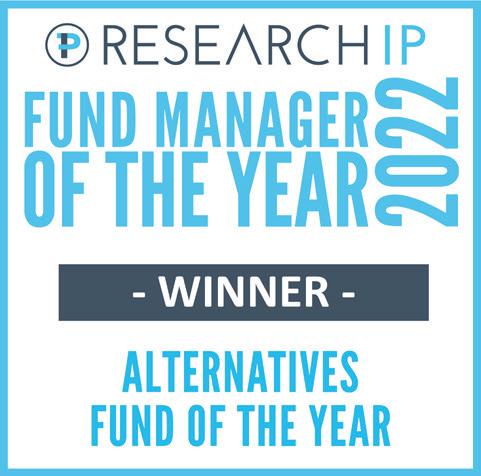
Boutique Fund Manager of the Year (2022) – Finalist

Salt is recognised as a Responsible Investment Leader 2022 by the Responsible Investment Association Australasia (RIAA). This acknowledges our commitment to responsible investing; our explicit consideration of environmental, social and governance factors in investment decision making, our strong and collaborative stewardship; and our transparency in reporting activity, including the societal and environmental outcomes being achieved.

The inaugural Aotearoa New Zealand Stewardship Code was introduced in 2022 as a framework consisting of nine core principles governing the incorporation of effective stewardship within the investment process. As a founding signatory, Salt is a proud supporter of the code and is committed to continuously improving our capital allocation and governance practices to contribute towards sustainable ESG outcomes.
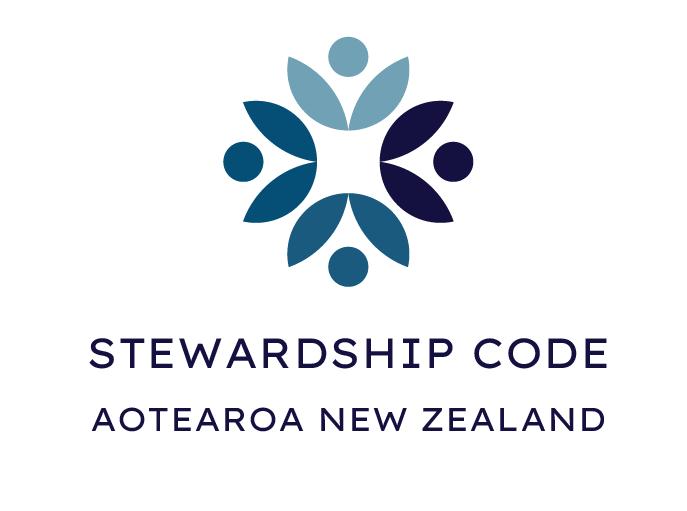

The TCFD introduced recommendations for climate-related financial disclosure to support informed capital allocation by improving the quality of information disclosed by companies that is essential in assessing their climate-related risks and opportunities. Salt is a signatory of these recommendations and supports the TCFD’s goals of encouraging their widespread adoption and improving market transparency.


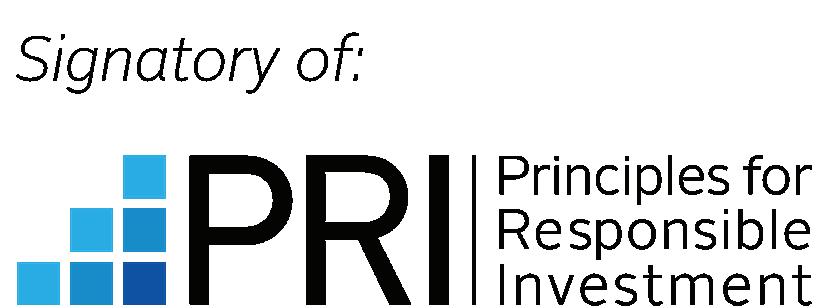
The Principles for Responsible Investment were introduced by the United Nations in 2006 as a framework for incorporating ESG considerations into investment decision-making and ownership. As a signatory of these principles, Salt is required to report on the responsible investment activities that form part of the investment process and is assessed on an annual basis. These actions demonstrate Salt’s commitment to the development of an economically efficient, and more sustainable global financial system.
The following ‘scorecard’ presents a summary of Salt’s publicly available transparency report reviewing our responsible investment practices for 20213












3PRI experienced software issues in 2022 and will re-commence reporting in 2023.

Salt has appointed Morgan Stanley Investment Management and Cohen & Steers to manage the underlying investments for our global sustainable funds.
• Sustainable Global Shares Fund
• Sustainable Fixed Income Opportunities Funds
MSIM has over four decades of investment experience, with investment strategies that span the risk/return spectrum across geographies, investment styles and asset classes. With offices in over 20 countries, MSIM are able to provide in-depth local knowledge and expertise while channelling the strength of their global presence and resources in making key investment decisions.
A particular strength is their emphasis on sustainable management through the integration of ESG considerations into their investment approach along the following Sustainable Investing Spectrum:
Integrate ESG considerations into research, valuation and portfolio construction, as appropriate.
Source: MSIM
Values-,nomsor sector-based exclusions.
Example: ‘sin’ stocks, fossil fuels
Sustainable Core
Strong sustainability standards, e.g. minimum inclusion standard or intentional sustainability tilt, alongside ESG integration and possible exclusions.
Example: targeted engagement funds, low carbon-screened funds.
Sustainable Objectives and impact
Seek measurable positive social and / or environmental objectives alongside financial return.
Example: net zeroaligned funds, pureplay impact funds.
At the core of this approach is their proprietary ESG Material Risk Indicator (MRI) Analysis that aims to evaluate individual securities along the following elements:
- Universal Risks
- Industry-specific Risks
- Company-specific Risks
- ESG opportunities
This analysis ascribes each security with a unique ESG rating that then informs a possible course of investment action, such as avoidance, targeted engagement, Weighted Average Cost of Capital (WACC) adjustment, financial modelling, or position sizing.
The overall objectives of this top-down selection process are to:
• Reduce exposure to material ESG risk and negative sustainability impacts, through restriction screening of controversial sectors such as weapons, tobacco, and some fossil fuels, as well as international norms violations;
• Tilt the portfolio in favour of the 80% strongest sustainability performers across corporates, by sub-sector and sovereigns; and
• Contribute to positive outcomes based on key sustainability themes, with a particular focus on low carbon intensity.
These measures are further complemented by MSIM’s bottom-up analysis and Salt’s Sustainable Investing Toolkit:
Incorporating third-party and public data as well as our own analysis, to assess corporates and sovereigns. Focus on materiality of ESG factors to reflect our specific requirements as Fixed Income investors, with emphasis on positive momentum.
Source: Salt Funds Management
Led by our research analysts with the guidance of the Sustainable Investing and Global Stewardship terms, aimed at improving issuers’ contribution to sustainability outcomes while helping us understand ESG risks better.
Through a proprietary model, to inform the decision whether to own a bond based on the robustness of its sustainability characteristics, in addition to risk/return considerations
• Sustainable Global Listed Infrastructure Fund
• Sustainable Global Listed Property Funds
CNS is an active management business that through careful consideration, has become the largest manager of preferred securities and established a global research platform for real estate, infrastructure and other listed real assets. Their focus is delivering superior investment performance, building around core strengths in real assets and alternative income to meet the growing demand for yield, diversification and real returns.
CNS share Salt’s view that ESG forms an essential part of fundamental analysis that encourages positive change and enhances long-term value. They have developed the following four-step ESG integration process as part of their investment approach:
• Identify material ESG factors for each sector by reviewing standards, MSCI and other sources.
• Determine E, S and G pillar weights and underlying factor weights.
• Determine ESG Scores for each company in the investabale universe
• Apply propriety ESG assessments
• Consistently apply internal ESG scoring scale
• Scores assessed at least quarterly
• Effect positive change and track outcomes
• Engage with company boards and management teams
• Undertake proxy voting
• Promote industry best practice
• Integrate ESG scores into investment decisions
• Scores are integrated into company valuations
• Approach varies by strategy
This proprietary process is further enhanced through active engagement with the aim of influencing or changing a portfolio company’s ESG practices that may have a material impact on the company’s ability to preserve or grow its economic value. CNS leverage the ability to effectively generate dialogue with management of individual companies, as well as wider industry participants, to advocate for sound ESG principles and promote stakeholder alignment. To further enhance the portfolio influences of these measures, CNS also engage in proxy voting to protect clients’ long -term interests and, as a last resort, will escalate any relevant matters through collaborative engagement or public disclosure.
Together, these measures ensure that CNS’s investment decision-making has strong foundations in sustainable investment and is closely aligned with Salt’s ESG integration principles. This shared view is further complemented by the framework established in the PRI Initiative, of which both CNS and Salt are signatories, which helps promote transparency and enhances the ability to deliver more consistent, attractive risk-adjusted returns.
In 2022, Salt’s estimated carbon footprint came to 4,729kg of CO2-equivalent (CO2e) for the year, a net increase of 614kg on 2021. This increase was almost entirely attributable to an increase in both land and air travel undertaken by members of the Salt team, which increased 612kg to a total of 3580kg in 2022. This carbon footprint was generated using the tools made available by the Carbon Neutral NZ Trust. Their methodology incorporates Salt’s voluntary disclosure of Scope 1 & 2 CO2 emissions produced through different activities of the business, such as energy use, transport, travel, and waste production4. Any activities resulting in the sequestration of CO2 are also considered and subtracted from the final total emissions figure for the business.
The result of this analysis, summarised in the following chart, shows that travel has become the most significant business activity in our firm’s carbon budget. Going forward, our firm’s carbon footprint will be highly dependent on those sources of CO2 emissions directly under our control and how we go about managing these.
In an effort to measure and track the Scope 3 emissions produced by Salt’s various investment portfolios, an internal process is currently being developed to calculate their unique carbon footprint. This process is underpinned by the effective engagement with individual listed companies that are constituents of each portfolio, as well as the utilisation of any publicly available ESG information they provide. We are also investigating the suitability and use of certain 3rd party emissions data providers as part of this process, which will significantly enhance the quality and accuracy of our carbon disclosures in the future.
Through partnerships and sponsorships, Salt has been an active supporter of a number of organizations that align with specific United Nations Sustainable Development Goals.

The Auckland Rescue Helicopter Trust has been saving the lives of New Zealanders for the last four decades and continues to help those requiring time-critical aeromedical care all over the country.
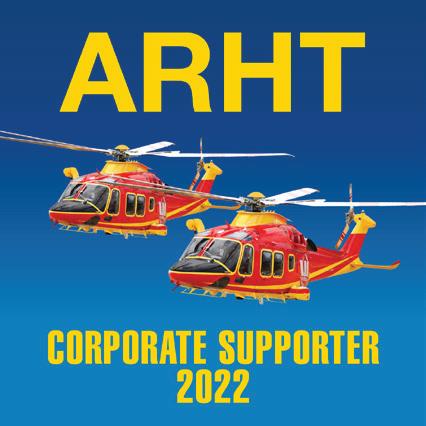
CONSERVE AND SUSTAINABLY USE THE OCEANS, SEA AND MARINE RESOURCES FOR SUSTAINABLE DEVELOPMENT

The New Zealand Antarctic Society aims to support the protection of the Antarctic environment and promote New Zealand’s interests by creating awareness through the collaboration of those interested in the Antarctic region.

PROTECT, RESTORE AND PROMOTE SUSTAINABLE USE OF TERRESTRIAL ECOSYSTEMS, SUSTAINABLY MANAGE FORESTS, COMBAT DESERTIFICATION, AND HALT AND REVERSE LAND DEGRADATION AND HALT BIODIVERSITY LOSS

The Great Green Wall is an African-led initiative that aims to grow a natural flora-based belt spanning the width of the continent to aid those experiencing the direct impacts of climate change.















IMPORTANT INFORMATION
The information in this publication has been prepared from sources believed to be reliable and accurate at the time of preparation but Salt Funds Management Limited, its officers and directors, make no representation or warranty as to the accuracy or completeness of any of the information contained within. All analysis, opinions and views reflect a judgment at the date of publication and are subject to change without notice. This publication is provided for general information purposes only. To the extent that any of the information in this publication does constitute advice, it does not take into account an investor’s financial situation or goals. An investor should, before making any investment decisions, seek professional advice, having regard to the investor’s financial situation and goals. Past performance is not a reliable indicator of future performance and no representation or warranty, express or implied, is made regarding future performance. This presentation is solely for the use of the person or persons to whom it is provided and must not be distributed or copied, in part or in whole, without the permission of Salt Funds Management Limited. Salt Investment Funds Limited is the issuer of units in the funds comprising the Salt Investment Funds, Salt Listed Funds and Salt Wholesale Funds Schemes. Product Disclosure Statements and Investment Memorandum are available from saltfunds.co.nz